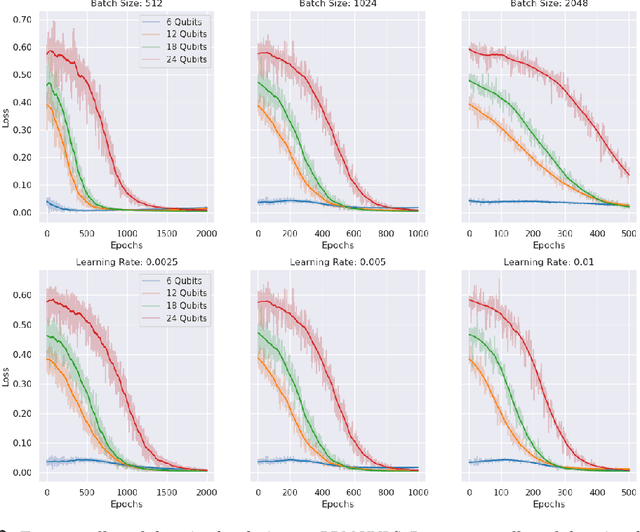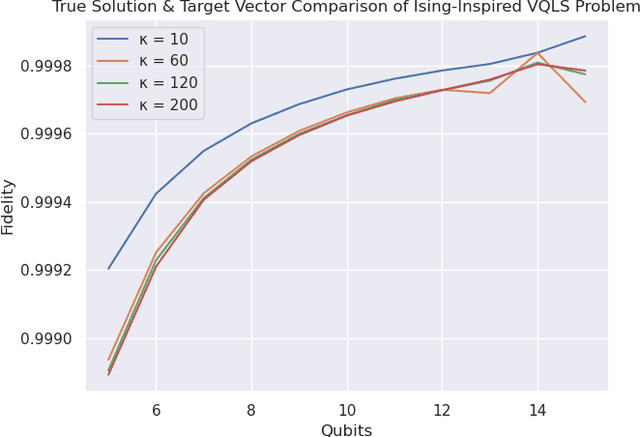Toward Neural Network Simulation of Variational Quantum Algorithms
Paper and Code
Nov 05, 2022


Variational quantum algorithms (VQAs) utilize a hybrid quantum-classical architecture to recast problems of high-dimensional linear algebra as ones of stochastic optimization. Despite the promise of leveraging near- to intermediate-term quantum resources to accelerate this task, the computational advantage of VQAs over wholly classical algorithms has not been firmly established. For instance, while the variational quantum eigensolver (VQE) has been developed to approximate low-lying eigenmodes of high-dimensional sparse linear operators, analogous classical optimization algorithms exist in the variational Monte Carlo (VMC) literature, utilizing neural networks in place of quantum circuits to represent quantum states. In this paper we ask if classical stochastic optimization algorithms can be constructed paralleling other VQAs, focusing on the example of the variational quantum linear solver (VQLS). We find that such a construction can be applied to the VQLS, yielding a paradigm that could theoretically extend to other VQAs of similar form.
 Add to Chrome
Add to Chrome Add to Firefox
Add to Firefox Add to Edge
Add to Edge